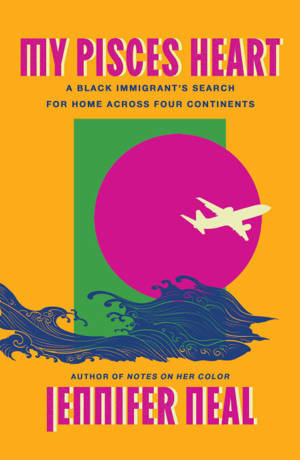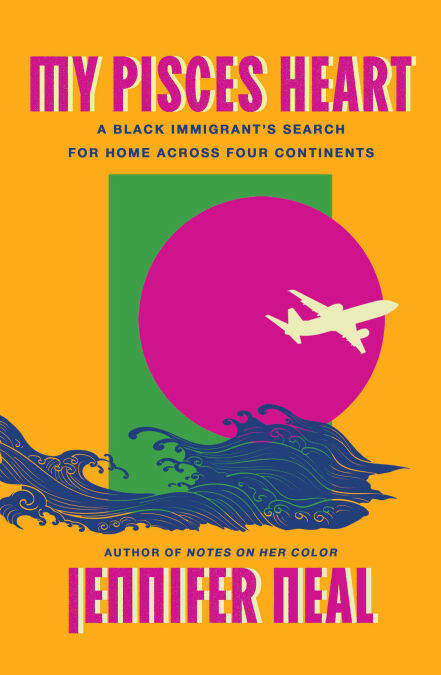
Bedankt voor het vertrouwen het afgelopen jaar! Om jou te bedanken bieden we GRATIS verzending (in België) aan op alles gedurende de hele maand januari.
- Afhalen na 1 uur in een winkel met voorraad
- In januari gratis thuislevering in België
- Ruim aanbod met 7 miljoen producten
Bedankt voor het vertrouwen het afgelopen jaar! Om jou te bedanken bieden we GRATIS verzending (in België) aan op alles gedurende de hele maand januari.
- Afhalen na 1 uur in een winkel met voorraad
- In januari gratis thuislevering in België
- Ruim aanbod met 7 miljoen producten
Zoeken
My Pisces Heart E-BOOK
A Black Immigrant's Search for Home Across Four Continents
Jennifer Neal
E-book | Engels
€ 17,69
+ 17 punten
Uitvoering
Omschrijving
Finalist for the Clara Johnson Award
With heart, humor, and razor-sharp observation, this intimate and incisive memoir traces the journey of a Black, queer woman as she searches the world for a place of security and acceptance to call home
I’ve never seen home as a permanent concept; it is an image crafted from untempered glass that threatens to shatter with lack of care.
Jennifer Neal was born in the United States to a family that moved continuously for their own survival and well-being—from the Great Migration to the twenty-first century. As an adult, she has continued to travel the world as a Black queer woman, across two decades and four countries—from Japan to the US and then Australia to Germany, where she has settled for now.
Throughout her moves, Neal threads her personal story of immigration with local Black histories and racial politics to provide context for her own experiences. The result is both a crucial examination of how racism plays a foundational role in modern-day immigration systems and a tender tribute to immigrants and their stories.
An unwavering interrogation of colonialism and policy, love and loss, hypocrisy and resistance, My Pisces Heart demands meaningful conversation about not only the ways in which we live with our histories, but also how they live through us—urging an honest dialogue on why the West continues to grapple with its past and visualize its future.
With heart, humor, and razor-sharp observation, this intimate and incisive memoir traces the journey of a Black, queer woman as she searches the world for a place of security and acceptance to call home
I’ve never seen home as a permanent concept; it is an image crafted from untempered glass that threatens to shatter with lack of care.
Jennifer Neal was born in the United States to a family that moved continuously for their own survival and well-being—from the Great Migration to the twenty-first century. As an adult, she has continued to travel the world as a Black queer woman, across two decades and four countries—from Japan to the US and then Australia to Germany, where she has settled for now.
Throughout her moves, Neal threads her personal story of immigration with local Black histories and racial politics to provide context for her own experiences. The result is both a crucial examination of how racism plays a foundational role in modern-day immigration systems and a tender tribute to immigrants and their stories.
An unwavering interrogation of colonialism and policy, love and loss, hypocrisy and resistance, My Pisces Heart demands meaningful conversation about not only the ways in which we live with our histories, but also how they live through us—urging an honest dialogue on why the West continues to grapple with its past and visualize its future.
Specificaties
Betrokkenen
- Auteur(s):
- Uitgeverij:
Inhoud
- Aantal bladzijden:
- 368
- Taal:
- Engels
Eigenschappen
- Productcode (EAN):
- 9781646221851
- Verschijningsdatum:
- 21/10/2024
- Uitvoering:
- E-book
- Beveiligd met:
- Adobe DRM
- Formaat:
- ePub

Alleen bij Standaard Boekhandel
+ 17 punten op je klantenkaart van Standaard Boekhandel
Beoordelingen
We publiceren alleen reviews die voldoen aan de voorwaarden voor reviews. Bekijk onze voorwaarden voor reviews.









